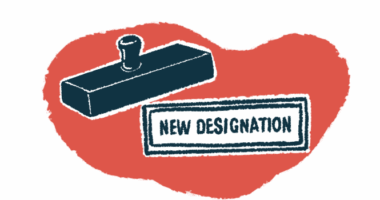ALS Awareness Is Good, but Action Is Better

In the summer of 2014, people across the world dumped water over their heads in the ALS ice bucket challenge and shared videos of the experience on social media.
Our son, Isaac, who was 4 at the time, did it, saying, “I’m having my aunties and uncles do the ice bucket challenge for Daddy.” He poured a copper bucket of water over his head, and ice cubes fell to the patio. It was adorable. I cheered and told him to head for the sauna.
Days later, our local Fox affiliate asked to interview my husband, Todd, and me about the viral sensation. The broadcast showed b-roll of Todd in his wheelchair, petting his dog, Comet, while I prepared three buckets of ice water. My daughter and I did the ice bucket challenge for the first time, and Isaac did it again.
“Pretty soon, the internet can go back to cat videos and covers of ‘Let It Go,’” Todd told the reporter. “But right now, ALS has the spotlight.”
There was so much awareness generated. So much money was raised. Awareness of ALS is important, but it’s disheartening to reflect on how little has changed.
Progress proves elusive
A lot of money was directed toward research, but here we are nearly seven years later, and we still haven’t found a cure. I’ve been keeping an eye on some promising treatments, but I’m not feeling too hopeful that something will arrive in time for Todd. One treatment I had the most hope for was recently rejected by the U.S. Food and Drug Administration.
Support services for ALS haven’t improved, either. In the United States, Medicare doesn’t provide adequate caregiving services for people who have no ability to care for themselves, including people who are paralyzed. Theoretically, paralyzed people with ALS should be able to get some care, but that is not the reality.
Medicare rules for agency reimbursement are complex, and it is a battle for people to get any help on a long-term basis. Few people with ALS get more than several hours a week until they enter hospice, and even then, the hours of caregiving help are minimal.
Except for veterans, most caregiving costs must be paid out of pocket unless people meet low-income requirements and deplete assets. Only then are they eligible for state aid (Medicaid) in most states.
Many families’ disability income makes them ineligible for Medicaid, but it is not enough to afford the level of care people with ALS need.
It’s often not an option for the healthy spouse to work to fund caregiving, because the cost to hire aides or nurses for the time the spouse is at work is often more than what the spouse can earn. But some need to work outside the home, even if they gain little income, in order to have health insurance for themselves and their kids.
Our system puts families with ALS — families who are trying to raise kids, provide for their needs, and give them as good of a life as possible despite difficult circumstances — in a precarious financial position.
The time for change is now
On a personal level, Todd and I are doing OK now. I was at my breaking point after a couple years of sleep deprivation, and we are so thankful for those who stepped up to support us. But not everyone has a strong support network.
We need systemic change in the U.S. healthcare system. Many of my fellow caregiving spouses are stressed out and sleep-deprived because they are up and down all night, turning their spouse every hour, scratching itches, and suctioning. They aren’t able to get the rest necessary for good mental health. I’ve been there. It’s unsustainable.
Those new to the disease are shocked to find out that help isn’t covered by insurance unless people had the foresight to purchase long-term care insurance. For most young families, planning for permanent disability wasn’t on their radar.
May is ALS Awareness Month, but I want more than awareness. I want action.
I want Medicare reformed so that people who are paralyzed — some of the most vulnerable people in our society — get a reasonable amount of home healthcare.
I don’t hear either political party talking about reforming Medicare in a way that would provide the level of care people with ALS need. I don’t hear ALS organizations pushing for Medicare reform. I would like to see them send lobbyists to Washington, D.C., to bend the ears of lawmakers so they understand the crises families with ALS are facing.
I am reminded of a passage of Scripture that says that “faith by itself, if it is not accompanied by action, is dead.” (James 2:17 NIV)
I’ll echo that sentiment: Awareness without action is dead.
***
Note: ALS News Today is strictly a news and information website about the disease. It does not provide medical advice, diagnosis, or treatment. This content is not intended to be a substitute for professional medical advice, diagnosis, or treatment. Always seek the advice of your physician or other qualified health provider with any questions you may have regarding a medical condition. Never disregard professional medical advice or delay in seeking it because of something you have read on this website. The opinions expressed in this column are not those of ALS News Today or its parent company, Bionews, and are intended to spark discussion about issues pertaining to ALS.







Thaddeus Szczesny
Spot On
Margaret
Kristin, I feel like one of the lucky caregivers. My husband was diagnosed with ALS 3 years ago. As a vet, the VA has provided his care & equipment at no cost to us. He is also seen by the ALS center in Albany NY. What a blessing! I wish there was Medicare coverage for all with this & any other serious disease. You are a strong woman with a great support system, otherwise how could you do it?
RichardHasALS
Hi Kristin,
I can relate to your recent article ”ALS Awareness Is Good, but Action Is Better”, I agree with you 100 percent!
Quoting from your article is also my viewpoint; “A lot of money was directed toward research, but here we are nearly seven years later, and we still haven’t found a cure.”
When will research turn into treatments?
Awareness and action go hand-in-hand. If more people knew about the awful life an ALS patient goes through then maybe there would be more action. Prior to my diagnosis (at age 61) I knew nothing about ALS, other than Lou Gehrig and Steven Hawking having it. I’m not a rocket scientist but no dummy either. If I knew nothing about ALS in 61 years of living, then I can certainly understand why others may not know about it.
Part of the problem of ALS awareness and lack of treatment options falls on the people leading the charge for an ALS cure. They are complacent and not being aggressive enough. As an example, I had a concern about an email I received a few months ago from The ALS Association ([email protected]) touting their success in their effort to work with the House of Representatives in passing the ALS Disability Insurance Access Act. Below is a quote from the email I received from them:
”Over the last four years, YOU have helped build the momentum and support for this bill. From a single sponsor when it was originally introduced in 2016…”
With the proper message and assertiveness the bill should have been passed in months, not years. I indicated in an email that I wouldn’t be very proud of the fact that it took 4 years to pass a bill. Rather, I’d be embarrassed! I sent my response to the ALS Association email addresses listed below. I got no response from anyone.
[email protected]
[email protected]
[email protected]
[email protected]
[email protected]
[email protected]
[email protected]
[email protected]
[email protected]
[email protected]
I believe that people are either part of the problem or part of the solution. So, what can ALS News Today do to help promote ALS (lack of treatment option) awareness and action?
Some possible suggestions on how to better promote ALS awareness:
1 – Soliciting from your readers their thoughts on this subject, they may have some good suggestions.
2 – Promoting clinical trial participation with links to trials looking for participates.
3 – Have a dedicated link (possibly called “Advocacy”) on the ALS News Today home page, that explains how to help promote ALS Awareness. Sub-links could include how to contact your local US state representatives, fund raising techniques among other topics that inform us how to make others aware of ALS.
4 – There are several ALS Associations. Can money be more wisely spent? Are there too many organizations with resources being stretched or efforts being duplicated? Is consolidation necessary?
5 – Better use of social media platforms.
6 – Every year I receive dozens of donation requests in the US mail from organizations such as the VFW, leukemia, cancer, St. Jude’s, animal shelters, etc. I have never received anything for ALS. Why?
Thanks again for a great article!
Rich